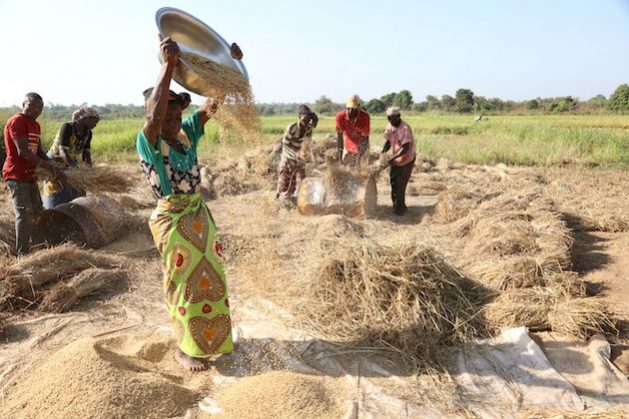Agri Fintech is revolutionizing African farming by bridging critical financial gaps and empowering millions of farmers to thrive in an increasingly digital world. By leveraging mobile technology, satellite data, and innovative lending models, agri fintech solutions are enabling access to quality inputs, affordable credit, and insurance products tailored specifically for the agricultural sector.
1. How Financial Access to Smallholder Farmers
Smallholder farmers have long struggled to secure loans and financial services through traditional banks due to lack of collateral, credit history, and geographical barriers. Agri fintech platforms bypass these hurdles by using alternative data sources and mobile accessibility to offer microloans and flexible repayment plans. Services like Apollo Agriculture in Kenya assess land health through satellite imagery and customize financing accordingly, ensuring farmers get precisely what they need to boost productivity. This democratization of finance is reshaping the future of farming by making capital accessible to those previously excluded.
2. Insurance Solutions Tailored for Farmers:
Climate change and unpredictable weather patterns pose existential risks to farmers. Agri fintech companies like Pula Advisors are creating affordable, crop-specific insurance products that provide a safety net against droughts, floods, and pest outbreaks. This insurance protects farmers’ livelihoods, encourages investment, and stabilizes food supply chains. By automating claims and payouts using digital technology, agri fintech ensures faster, transparent support when farmers need it most.
3. Leveraging Technology to Optimize Agricultural Inputs and Yields
Beyond finance, agri fintech integrates technology such as machine learning and satellite monitoring to optimize farming practices. Companies like ThriveAgric connect farmers to quality seeds, fertilizers, and market opportunities via mobile platforms, boosting yields and incomes. Real-time data helps farmers make informed decisions, reduce losses, and increase sustainability. This fusion of fintech and precision agriculture drives greater efficiency and economic resilience in rural communities.
4. Expanding Market Access and Value Chains through Agri Fintech
Access to reliable buyers and fair pricing remains a challenge for many farmers. Agri fintech platforms not only provide financing but also connect producers directly with markets, eliminating exploitative middlemen. Digital marketplaces and payment solutions facilitate transparent transactions, increasing farmers’ profits and fostering trust in the value chain. This integrated approach transforms the agricultural ecosystem, empowering farmers to scale their businesses sustainably.
5. Addressing Digital Literacy and Connectivity Challenges
While agri fintech offers great promise, challenges such as limited internet access and digital literacy persist in rural Africa. Companies and governments must invest in infrastructure and training programs to ensure farmers can fully benefit from digital financial tools. Community-based initiatives that combine tech education with financial inclusion help bridge these gaps, enabling wider adoption and long-term success of agri fintech solutions.
6. The Role of Policy and Collaboration
Supportive regulatory environments and cross-sector partnerships are vital to the growth of agri fintech. Policymakers must create frameworks that encourage innovation while protecting farmers’ interests. Collaboration between fintech startups, agricultural organizations, telecom providers, and governments accelerates product development and market penetration. The synergy between these stakeholders will determine the pace and scale at which agri fintech can transform African agriculture.
7. Impact on Women Farmers and Gender Inclusion
Women farmers form a substantial part of Africa’s agricultural workforce but often face disproportionate barriers to accessing finance and technology. Agri Fintech platforms are beginning to address these disparities by creating tailored products that empower women entrepreneurs. By facilitating easier loan approvals, group savings schemes, and digital literacy training, agri fintech is unlocking economic potential for women in farming communities. This inclusive approach not only fosters gender equality but also drives sustainable development, as empowered women reinvest earnings into their families and communities, amplifying the positive impact across generations.
8. The Role of Mobile Payments and Digital Wallets
Mobile money and digital wallets are fundamental components of agri fintech’s success. These tools enable farmers to conduct transactions seamlessly, receive payments instantly, and avoid the risks associated with cash handling. In many rural regions, mobile payment solutions have become the backbone of everyday financial activity. Agri fintech integrates these payment options with lending, insurance, and marketplace services, creating a comprehensive ecosystem that simplifies financial management for farmers. This increased convenience reduces friction in transactions and encourages greater participation in formal financial systems.
9. Using Data Analytics and AI to Enhance Services
Advanced data analytics and artificial intelligence (AI) are revolutionizing agri fintech by providing deeper insights into farming patterns, creditworthiness, and risk assessment. AI algorithms analyze satellite imagery, weather data, and transaction histories to tailor financial products and optimize loan terms for farmers. This personalized approach reduces default rates and enhances farmers’ ability to plan their activities effectively. Moreover, AI-driven predictive analytics can anticipate droughts or pest outbreaks, allowing fintech providers to offer timely insurance and advisory services. The fusion of AI and fintech is transforming agricultural finance into a precision tool for growth and resilience.
10. Environmental Sustainability and Innovations
Sustainability is becoming an integral part of agri fintech strategies as the industry recognizes the need to balance economic growth with environmental stewardship. Platforms are incorporating incentives for climate-smart agriculture, such as rewarding farmers who adopt eco-friendly practices or use drought-resistant seeds. Some fintech solutions fund projects that promote soil conservation, water management, and renewable energy adoption on farms. By aligning financial products with sustainability goals, agri fintech contributes to long-term food security and helps mitigate the adverse effects of climate change on vulnerable farming populations.
11. The Future : Emerging Trends and Opportunities
Looking forward, agri fintech is poised for exponential growth driven by technological advances and increasing demand for financial inclusion. Blockchain technology promises to enhance transparency in supply chains and improve trust between farmers and buyers. Integration with IoT devices will provide real-time monitoring of crops and livestock, further optimizing resource use. Moreover, cross-border agri fintech collaborations could unlock new markets and investment opportunities. For investors, entrepreneurs, and policymakers, the agri fintech sector offers a fertile ground for innovation that can transform agriculture into a thriving, tech-enabled industry across Africa.
Conclusion:
The fusion of fintech and agriculture marks a new chapter for African farmers. Agri fintech is not just about providing financial products—it’s about building resilient farming communities, securing food systems, and driving economic growth across the continent. By empowering farmers with access to credit, insurance, technology, and markets, agri fintech creates opportunities that ripple through families and entire economies.
For those interested in exploring further, the insights from Mauritius Biz Monitor offer a wealth of knowledge on emerging fintech trends shaping Africa’s future. To deepen your understanding of digital innovation in agriculture, check out our detailed analysis on agriculture technology trends and discover how these advancements are fueling new opportunities for farmers.
Source: FinitiTh Insider




